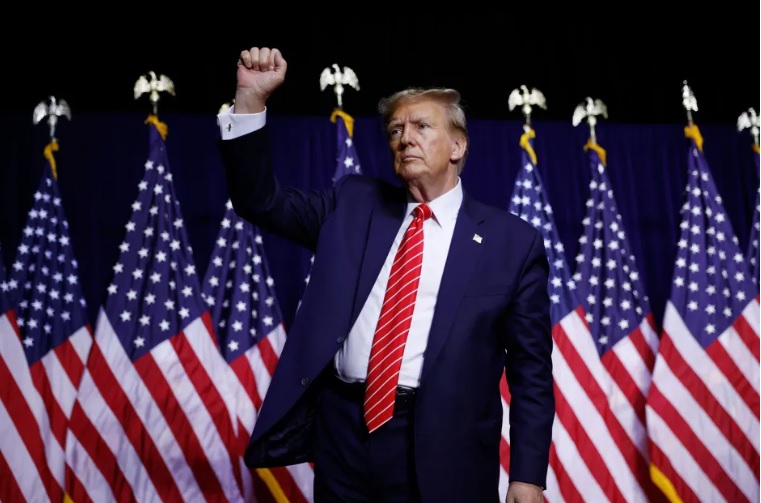How will the US economy grow amid Trump’s tariffs?
President Trump was elected on a mandate to make America great again. It is possible that his program of tariffs, tax cuts, deportations, gutting the government and more could do just this. But perhaps it’s equally likely that it turns into a ghastly mess. Traders and investors have to decide which it will be.

Trump is a polarizing politician and it seems that the likely destination for the US economy and its financial markets is polarized as well. Things could conceivably go very well, even if economists and the markets may be skeptical. Tariffs, if spread wide enough could generate considerable revenue and so ease concerns over the budget deficit.
In addition, tax cuts to reward firms that produce in the US could suck companies into the country, potentially pulling in more revenue for the government and make the tax cut self-funding. Another budgetary fillip could come as a result of huge savings made by the new Department for Government Efficiency (DOGE) as it scours the public sector for workers to fire and costs to save.
The US could see its trade and current account deficits shrink should a stronger budget position contribute to an improvement in the level of total domestic savings in the economy relative to the level of investment. Trade might also be aided if those countries that bear the brunt of US tariffs do not fully reciprocate. There might also be notable geopolitical success should the Trump administration help bring peace to Ukraine and so reduce the amount of miliary funding the country has to deliver. And, as a more general ‘win’ Trump’s policies towards other countries could result in numerous and significant concessions. These might include more foreign orders for US products like energy and military equipment.
How would financial asset prices fair if, by this definition, Trump does make America ‘great’ again? An allaying of budgetary concerns could certainly prove a fillip for the treasury market provided, of course, that other policies, such as tariffs do not generate significant inflation. But this is, after all, the positive scenario, so we assume here that inflation does not flare up.
What about the US dollar? It might seem that making America great again will make the dollar even greater. But is that’s the case? The issue here is whether successful Trump policies would come at a cost to others, through tariffs, for instance. Or whether wins for Trump are wins for everyone else as well, such as lower treasury yields or an easing of uncertainty over the war in Ukraine. For if everyone wins we may actually find that the dollar loses.
The US economy and global financial asset prices could move in such a positive direction. But there’s also another scenario; that is more ‘ghastly’ than great. This one assumes that the budget spirals out of control with revenue raising measures such as tariffs and DOGE pressure ultimately failing to make much of a dent in the deficit. In addition, the world could end up in a very fractured state as countries reciprocate tariffs and any lingering diplomacy disintegrates as the Trump administration rides roughshod over things like international agreements, multilateral institutions, Ukraine’s demand for a say in any peace deal, and more. The policy of illegal migrant deportation could conceivably tighten the labour market too much, making labour shortages commonplace and lifting inflation in the process.
In this case, bond yields would likely surge, not fall and, while that might imply a crash and burn scenario that is better for the dollar than the MAGA scenario, it is difficult to conclude that it will be better overall for those holding any assets; whether inside the US or outside. The difficulty at the moment, of course, is that we don’t know which way things will go, or whether the US economy and its financial assets will fall down in the middle somewhere. Coming months may offer a clue to this. For now, the Standard Bank suspects that things are leaning more towards the ghastly scenario but it is far too early to judge.








